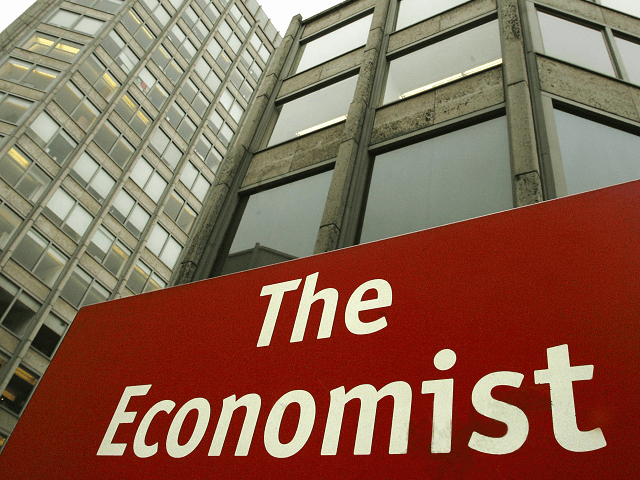The National Review magazine has published a scathing indictment of the fortunes of the Economist, which has taken a hard stance against President Donald Trump, while supporting the deep state and European integration.
Conrad Black writes:
For decades, The Economist steadily built up its sales in the United States as it found a market that was constantly growing in wealth and numbers and that could not be reached by the banalities of Time and Newsweek. Henry Luce’s American Century at Time tapered off into trite American vanity expressed in sophomoric attempts at sly writing. Newsweek was just the leavings shaken out of the Washington Post and finally ended up offering no news at all, only a series of tired opinion columns, as if any sane person would pay to have such material printed on glossy paper and stapled.
The Economist’s world reach, authoritative departments, robust Oxbridge English, clever photos and covers, and even smart Fleet Street photo captions, plus its enlightened conservatism, were a winning formula in the U.S. (At the height of the Troubles in Northern Ireland, it ran a black-and-white cover of a riot scene with charging mounted police and clouds of tear gas over the title “In This United Kingdom.”)
For a long time The Economist had too much faith in big and bossy government, and more concentration on apparent competence at execution and at the parliamentary despatch box or Washington press conference than on sound public policy. But The Economist, for a time, understood America. It was engulfed in the Watergate inundation and joined the righteous tide, unlike much of the continental European media that saw it all (accurately) as a pious exercise in Anglo-Saxon hypocrisy covering the crucifixion of a capable and successful president (and there remains no convincing evidence that Richard Nixon committed any illegalities).
But The Economist also saw, unlike almost all of Europe, that Ronald Reagan was the man in 1980; that Jimmy Carter was too insipid and indecisive to lead; that the Soviet Union was effectively out of control in Afghanistan, Central America, and Angola; and that the United States was starting to resemble “the pitiful helpless giant” that Mr. Nixon had warned it could become.
After the end of the Cold War, The Economist took its stance inflexibly for an integrated federal Europe, world free trade and almost open borders regardless of the resulting disruptions of immense flows of desperate people and dumped goods, the disgorgement of hundreds of billions of dollars to fight chimerical climate change, and a depressingly misguided or passive America. The Economist had reservations about George W. Bush’s harebrained pursuit of democracy, as it produced democratically elected anti-democratic governments. It has been magnificent in its exposé of the failure of the American War on Drugs and absurd over-sentencing and incarceration levels, and is generally fairly strong in non-political areas.
Read more at the National Review

COMMENTS
Please let us know if you're having issues with commenting.